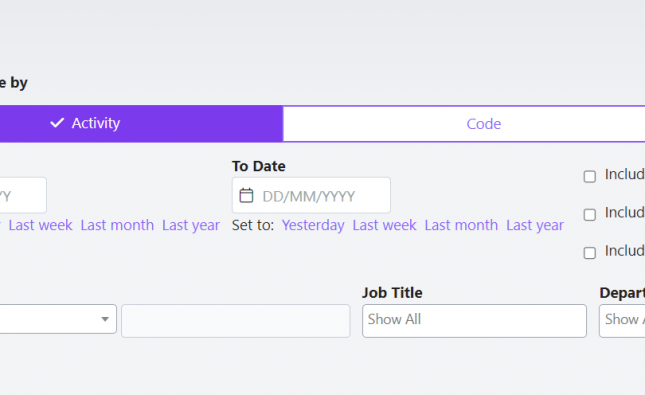Employees suffering from stress will find it has significant detrimental impacts on their mental and physical wellbeing. According to the Health Safety Executive (HSE), 1.6 million workers in the UK suffered from work-related ill health in 2019/20 – more than half (51%) of these cases were due to stress, depression, or anxiety. 55% of all working days were also lost due to work-related ill-health. The predominant cause of work-related stress, depression or anxiety was tight deadlines, lack of managerial support, organisational changes at work and workplace harassment.
Stress can be an unbearable burden, and all too often, employees continue suffering without recognising it or treating it. If employees are feeling stressed, it can significantly impact the whole team, affecting productivity, and it can also cause conflict and tension between colleagues. The Management of Health and Safety at Work Regulations 1999 requires employers to assess the risks to the health and safety of employees from the hazards of work. This act includes the risk of employees developing stress-related illnesses because of their work.
Organisations and their line managers must do all they can to promote high levels of wellbeing in their teams. Providing managers with training gives them the confidence to engage with mental health and wellbeing and the opportunity to support those employees who need some extra help. According to HSE, here are some ways to spot if your colleagues or employees feel stressed at work. Usually, it involves a change in behaviour or the way they think or feel, resulting in them:
- Taking more time off
- Arriving for work later or working longer hours
- Becoming more twitchy or nervous
- Mood swings and becoming increasingly irritable
- Being withdrawn – shying away or socially isolating themselves
- Loss of motivation, commitment, and confidence
- Increased emotional reactions – becoming overly sensitive
If some employees do feel stressed, they might not be the only ones and it is worth finding out if stress is affecting the whole team. If the reason for the stress is not found and addressed, then not only does the team suffer, but so does the company. Here are some signs if the team is feeling stressed (HSE):
- Arguments within the team
- Higher staff turnover
- More reports of stress
- More sickness absence
- Decreased performance
- More complaints and grievances
It takes time to find the right members of staff who are a good cultural fit with the rest of the team and have the right level of knowledge to fulfil the role. Not addressing the reasons for stress and nipping them in the bud will cause employees to feel irritable or overworked, especially if it’s due to too much workload. These effects can have a detrimental impact on the organisation. Resulting in not just a loss of valuable staff, but also time and financial loss.
If do you spot these signs of stress in your employees or your team, then business leaders must make it a priority to speak to them individually and as well as a team, to find out the reason for the way they are feeling. Transparency is key to understanding your employees and your team. Having a heart-to-heart with employees allows trust to build, so employees don’t feel worried or scared to confide in their business leader.
If the cause for stress is a work issue such as dealing with short deadlines or client demands, then support your team by helping them to prioritise their work. Speak to the client directly to ask for extensions and highlight the time taken for particular projects, so employees don’t feel like they are constantly chasing the clock. If employees feel stressed because of increased workload, then it’s crucial to ramp up recruitment efforts as quickly as possible to reduce the likelihood of losing valuable members of staff.
If employees feel stressed due to a personal issue, speak to them on a one-to-one basis and offer advice on what to do, or be supportive or empathetic, if you’re unable to provide support. Alternatively, if you think the employee may benefit from professional expertise, it’s recommendable to share a list of resources the employee can access inside or outside of work. For example, this could mean employees attending a mental health discussion group, support from a mental health and wellbeing charity, using an app, or perhaps taking up an activity such as yoga to relieve mental stress.
If you are worried about your colleagues or employees feeling stressed, why not take our course on ‘Identifying stress in your team‘? Don’t forget to check out the rest of our eLearning solutions in the Stress Management collection and speak to our team to book a demo.


